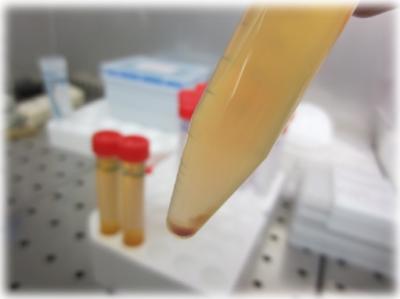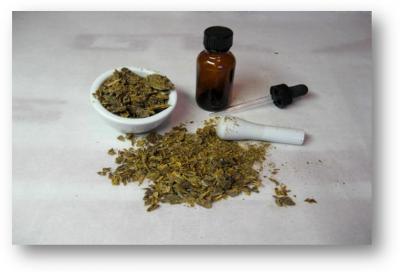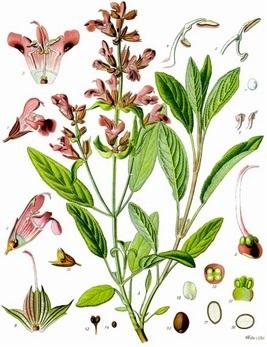
The Pharmaceutical Biology research group focuses on Pharmaceutical Botany, Phytotherapy, and Pharmacognosy, which, according to EEC Directive 83/570, is "the study of the composition and effects of the active principles contained in natural substances."
Phytotherapy is the science that deals with the treatment and prevention of human diseases through medicinal plants and phytotherapeutic products, and that studies the healing properties of plants or plant drugs (i.e., the dried parts of the medicinal plant used for therapeutic purposes), the general indications, the relative contraindications, the dosage, and the appropriate routes of administration. According to the WHO (World Health Organization), medicinal plants "are those that, when introduced into or brought into contact with a human or animal organism, exert a pharmacological activity, even if mild." The meaning of the term "officinal plant" is broader, as it includes plants used both in the pharmaceutical sector and in other industrial sectors, such as the liquor, cosmetic, food, etc.
The Pharmaceutical Biology working group aims to disseminate as much as possible the fundamental concept that the traditional use of medicinal plants must always be validated by targeted and accurate scientific investigations, which equate the herbal drug to conventional drugs, which are required to meet certain quality, safety, and efficacy requirements.

The scientific activity of the group consists of the botanical, phytochemical, pharmacological, and toxicological study of medicinal plants, aimed at the identification and chemical and biological characterization of active constituents and the selection of those potentially exploitable for therapeutic purposes. The main research topics of the group focus on: optimization of extraction methods from plant-based raw materials, specific phytochemical investigations, biological analyses of herbal drugs and their extracts; quality control of herbal products; development of analytical methods and innovative experimental procedures for the study of medicinal plants; toxicological evaluations on human cell cultures; study of the antioxidant, anti-inflammatory, and immunostimulating activity of plant products; application of innovative technologies such as in silico prediction techniques for pharmacokinetic and pharmacodynamic processes.

The educational activity consists of several postgraduate courses in which the group is deeply involved in terms of direction and coordination. For the group, these postgraduate courses are a priority, as we are deeply convinced that the two activities, research and education, synergistically form the most fruitful path of development in the study of medicinal plants.
Second-level Master's in Phytotherapy: This Master's degree is aimed at graduates with specialized or master's degrees in scientific fields and aims to provide specific knowledge and skills in the use of plant-based drug preparation techniques, as well as an in-depth understanding of medicinal plants and their preparations, their pharmacotoxicological and therapeutic characteristics, and the areas in which phytotherapy can be used rationally within the limits dictated by the current state of knowledge.
The Master’s therefore aims to train participants so that they can professionally respond to the requests of increasingly numerous patients who wish to use medicinal plants for treatment.

Laboratory of Pharmaceutical Biology: possesses the necessary equipment to address the experimental research phases related to medicinal plants, from the collection of plant material to the extraction, separation, and purification processes of active principles, from phytochemical analyses to in vitro evaluations on human cell cultures and in silico studies, to assess the biological properties of plant products. The laboratory utilizes the instrumentation necessary for the preparation of plant products and the execution of the most common "pharmacognostic" assays, such as specific glassware, dryers, mills, sieves, percolators, macerators, an ultrasonic bath, a Naviglio Extractor, various types of distillers and extractors according to the Pharmacopoeia. There is also a chemical fume hood and a laminar flow biological safety cabinet, thermostatic ovens, an incubator, a shaker, a centrifuge, three analytical balances, and six microscopes of various types.
Chemical analyses are performed using thin-layer chromatography, HPLC-DAD, UV-Vis spectrophotometer, and colorimetric reactions.
Biological analyses are carried out in the sterile area of the research laboratory and involve the use of in vitro tests on human cells. Equipment for reading absorbance, fluorescence, and chemiluminescence assays is available. The most used techniques are ELISA, accompanied by Western Blot, electrophoresis, and enzymatic tests.
In silico analyses, performed through a dedicated computer workstation, allow for docking structure and ligand-based simulations, as well as pharmacokinetic and pharmacodynamic simulations of plant products.
The research laboratory benefits from ongoing collaborations to expand its scope of activities, particularly with the Italian Society of Phytotherapy, and with many research laboratories both within the University of Siena and other Italian and foreign universities.